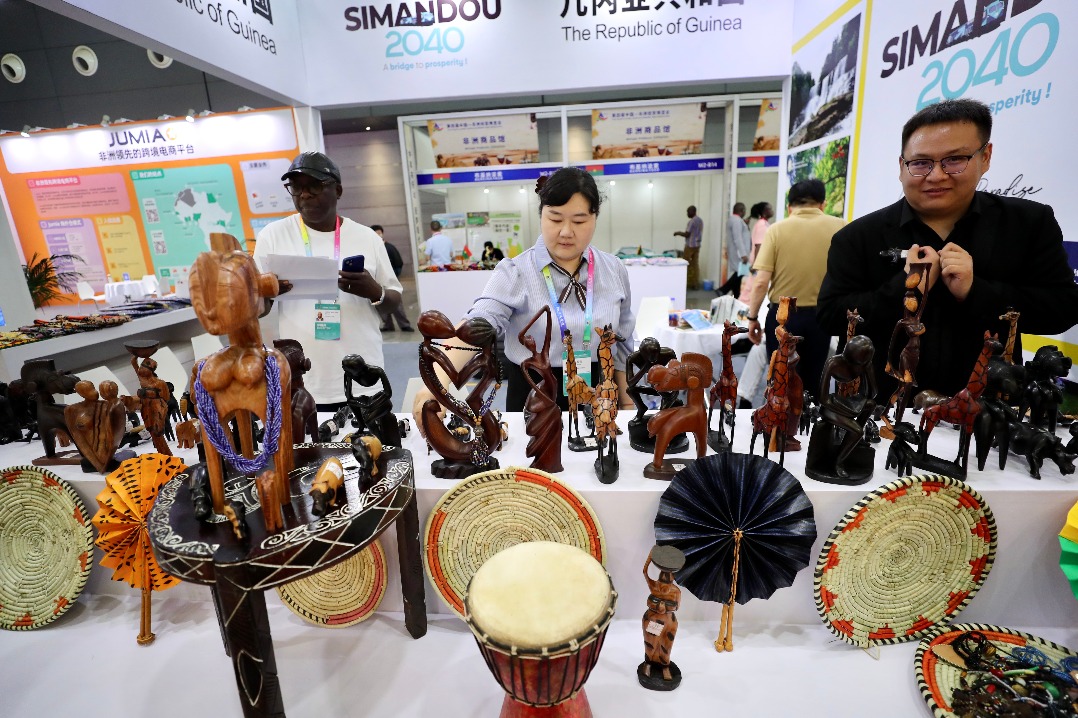Ambitious 5G base station plan for 2025
Promoting 5G revolution, 6G innovation to be a top focus next year


China aims to build over 4.5 million 5G base stations next year and give more policy as well as financial support to foster industries that can define the next decade, the country's top industry regulator said on Friday.
The move comes as the country charted its vision for industrial growth during a two-day work conference of the Ministry of Industry and Information Technology.
With 4.19 million 5G base stations already in operation, the industry regulator said that "promoting 5G revolution and 6G innovation will be one of the priorities" next year.
Alongside the 5G push, China will also start trials for 10-gigabit optical networks and optimize computing power centers amid an artificial intelligence (AI) boom brought on by ChatGPT.
Wen Ku, director-general of the China Communications Standards Association, said: "China has made remarkable strides in 5G infrastructure, which gives it an unparalleled edge in exploring 6G technologies."
In fact, Chinese academic researchers and telecom operators are leaving no stone unturned in efforts to establish a beachhead for 6G.
In July, China developed the world's first 6G field test network that integrates communications and intelligence, demonstrating that the transmission capabilities of 6G can be reached on 4G and 5G technologies.
Beyond connectivity, the conference also highlighted efforts to foster industries that could define the next decade.
Quantum technology, bio-manufacturing, embodied intelligence, and atomic-level manufacturing are among the fields that will receive more policy and financial support next year, according to the conference.
Demonstration projects for intelligent connected vehicles and expanded BeiDou Navigation Satellite System applications are also on the agenda, along with low-altitude information infrastructure tailored to regional needs, it said.
"China's blueprint for future industries is becoming clearer this year. The above fields will likely gain greater support amid rising geopolitical tensions," said Luo Zhiheng, chief economist of Guangzhou-based Yuekai Securities.
"Future industries may enter a new phase as detailed policies or action plans are expected from various ministries and commissions concerned," Luo said.
As China looks toward 2025, it aims to blend technological prowess with industrial strength, ensuring that the country remains a key player in shaping the global economic and technological landscape, industry experts said.
The MIIT also forecast on Friday that China's industrial output will grow by 5.7 percent year-on-year in 2024 and will maintain its weight in the country's GDP.
Revenue from the telecom sector, along with software and IT services, is expected to rise by about 11 percent year-on-year this year.
Green manufacturing has also gained ground, with 1,383 new green factories established this year.
Meanwhile, small and medium-sized enterprises flourished this year, with over 14,600 earning the title of little giant companies, or SMEs that are recognized for their specialized expertise and innovation.
In addition to domestic development, the MIIT also launched a pilot program in October aimed at expanding access to value-added telecommunication services for foreign enterprises.
The latest move underscores China's resolve to further open up its key sectors to foreign investors, despite moves by some Western countries to curb Chinese influence in high-tech industries.
MIIT minister Jin Zhuanglong said the launch of the pilot program has turned "a new page in opening-up for China's telecommunications industry, driving the gradual expansion of services to foreign companies".
US-based electric vehicle maker Tesla Inc was among the initial group of companies that applied for the trial, China Daily has reported previously.
Wang Zhiqin, vice-president of the China Academy of Information and Communications Technology, a government think tank, said that some of the areas where restrictions have been removed are strategically important for countries globally and are in the strong interest of foreign investors.
"China is enabling foreign players to share the dividends offered by the Chinese market. In return, such moves will help the country attract and utilize foreign investment more effectively, and enrich the variety of products and services for local consumers," Wang said.




































